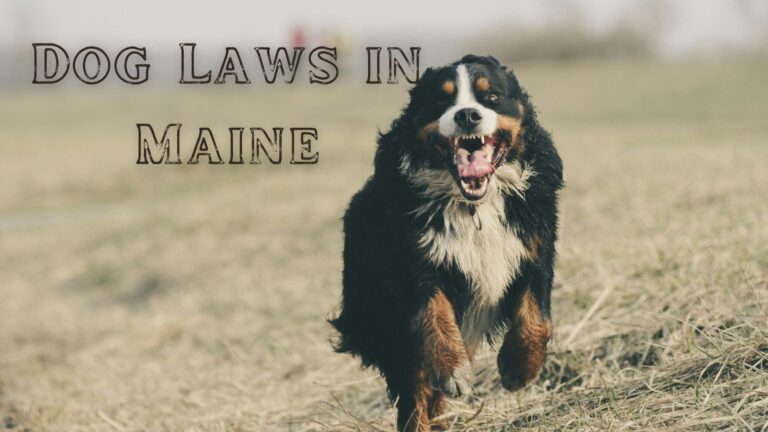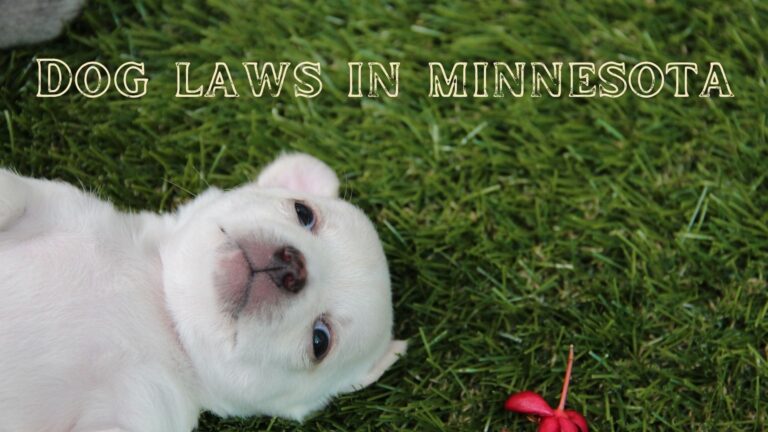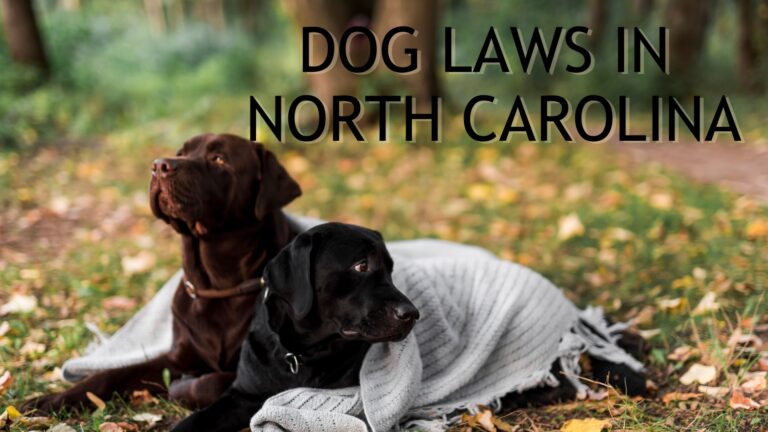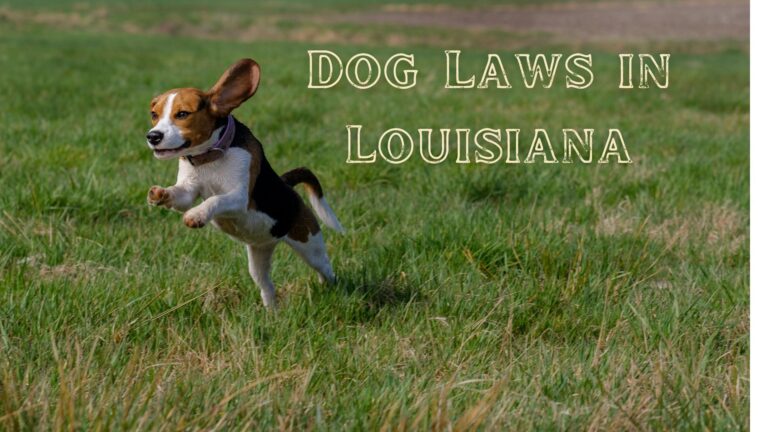Dog Laws In South Dakota
As a veterinarian with a passion for furry friends and a keen eye for legalese, I frequently get asked about dog laws in South Dakota. With over 85 million dogs gracing American homes, it’s no surprise that understanding the legalities around our canine companions is crucial.
South Dakota, like most states, has a complex web of regulations designed to protect public safety, animal welfare, and responsible pet ownership. These laws cover everything from licensing and vaccination requirements to leash laws and rules regarding vicious dogs. Navigating these regulations can feel like chasing your tail, but fear not! Let’s untangle the leash on dog laws in South Dakota and ensure a smooth walk for you and your pup.
Table of Contents
Dog Bite Laws in South Dakota
South Dakota, known for its vast prairies and friendly people, is also home to a significant number of canine companions. But with so many furry friends around, it’s natural to wonder: what happens in the unfortunate event of a dog bite? Understanding South Dakota’s dog bite laws can help you navigate this situation effectively.

South Dakota’s “One-Bite Rule” Explained
South Dakota follows a common law principle known as the “one-bite rule.” This means that a dog owner can be held liable for injuries caused by their dog’s bite, even if the dog has no prior history of aggression. However, the key here is establishing liability.
Here’s how it works:
- Strict Liability (Scienter): This legal concept allows a dog bite victim to sue the owner for damages without proving negligence. However, the victim must show that:
- The dog is a domestic animal (not a livestock animal).
- The owner knew (or should have known) of the dog’s dangerous propensities.
- These dangerous propensities are abnormal for the breed. This can be a challenging path, as proving the owner’s knowledge of the dog’s specific aggressive tendencies can be difficult.
- Negligence: This is a more common approach in dog bite cases. Here, the victim must prove that the dog owner acted negligently, meaning they failed to take reasonable care to prevent the bite. Examples of negligence could be:
- Failing to properly leash or confine the dog.
- Leaving the dog unattended in a situation where it could bite someone.
- Not having the dog properly vaccinated.
Important Considerations
Here are some crucial points to remember regarding dog bite laws in South Dakota:
- The Bite Victim’s Actions: South Dakota law protects dog owners from liability in certain situations. For instance, if the victim was trespassing on the owner’s property, provoking the dog, or attempting a crime, the owner may not be held liable.
- Local Ordinances: While there’s no statewide dog bite statute, some South Dakota cities and counties may have their own ordinances regarding leash laws, vicious dog declarations, and bite reporting procedures. It’s always wise to check with your local authorities for specific regulations in your area.
- Quarantine Procedures: Following a dog bite incident, Animal Control may require the dog to be quarantined for observation to rule out rabies.
- Medical Attention: Regardless of the legal aspects, seeking immediate medical attention for a dog bite is crucial. Report the incident to Animal Control and document the injury with photos or videos.
What to Do After a Dog Bite
If you’re unfortunately involved in a dog bite incident in South Dakota, here’s a recommended course of action:
- Seek Medical Attention: This is the top priority. Get the bite wound cleaned and treated to prevent infection.
- Report the Bite: Contact Animal Control to report the incident and initiate quarantine procedures for the dog.
- Document Everything: Take photos of the bite wound, the scene of the incident, and any witnesses present.
- Consult an Attorney: An experienced personal injury lawyer specializing in dog bite cases can advise you on your legal options and help navigate the claim process.
Remember: This information is for general educational purposes only and does not constitute legal advice. For specific legal guidance regarding a dog bite incident, consult with an attorney in South Dakota.
Beyond the “One-Bite Rule”
South Dakota has other dog-related laws in place to promote responsible pet ownership and public safety. Let’s explore some key regulations:
- Leash Laws: Many South Dakota cities and counties have leash laws requiring dogs to be restrained on a leash in public spaces.
- Licensing: Most South Dakota municipalities require dog licensing, with fees varying by location.
- Vaccinations: Rabies vaccinations are mandatory for dogs in South Dakota.
- Vicious Dog Declarations: If a dog exhibits dangerous behavior, Animal Control may declare it vicious, leading to stricter confinement regulations.
Dog Barking and Noise Laws in South Dakota
For many South Dakotans, their furry companions are cherished members of the family. But even the most beloved dog can become a source of frustration through excessive barking. Understanding South Dakota’s dog barking and noise laws can help maintain peace on the prairie and keep your pup on the good side of the neighbors.

South Dakota Noise Ordinances
Unlike some states with specific dog barking statutes, South Dakota addresses excessive canine vocalizations through local noise ordinances. These ordinances are enacted by individual cities and counties to regulate noise levels within their jurisdictions. There’s no single, statewide barking law, so the specifics will vary depending on your location.
Here’s the key takeaway: most South Dakota municipalities consider excessive dog barking a public nuisance. This means prolonged, disruptive barking can lead to fines or interventions by Animal Control.
What Constitutes Excessive Barking?
Unfortunately, there’s no universal definition of “excessive barking” in South Dakota. However, some common factors considered by authorities include:
- Duration: How long does the barking last? A few barks scattered throughout the day are unlikely to raise eyebrows, but continuous barking for extended periods (often defined as minutes or even hours) can be a nuisance.
- Frequency: How often does the barking occur? Occasional barking is normal canine behavior, but frequent, repetitive barking throughout the day or night can become disruptive.
- Time of Day: Is the barking concentrated during unreasonable hours? While some barking is expected during the day, excessive barking late at night or early in the morning can be particularly bothersome.
- Reason for Barking: Is the barking triggered by a specific event (e.g., someone approaching the property) or is it seemingly random? While territorial barking is a natural instinct, prolonged, unexplained barking is less tolerated.
Tips for Minimizing Excessive Barking
Here are some strategies to help your furry friend become a more harmonious member of the neighborhood:
- Address the Underlying Cause: Excessive barking often stems from boredom, anxiety, or a lack of training. Identify the trigger for your dog’s barking and address it accordingly. Consult a veterinarian or animal behaviorist for guidance.
- Provide Proper Exercise: A tired dog is a less vocal dog. Ensure your pup gets regular exercise through walks, playtime, and mental stimulation.
- Desensitization Training: If your dog barks at triggers like noises or passersby, desensitize them gradually using positive reinforcement techniques.
- Consider Anti-Barking Devices: Explore humane anti-barking tools like citronella collars or ultrasonic deterrents to discourage excessive barking.
Legal Repercussions
If your dog’s barking becomes a chronic nuisance, you could face consequences from Animal Control. Here’s a breakdown of the potential scenarios:
- Warning: Animal Control officers may issue a warning if a complaint is filed regarding your dog’s excessive barking.
- Citations: Repeated violations can lead to fines.
- Dog Impoundment: In extreme cases, Animal Control may impound your dog until you can address the barking issue.
Remember: It’s always best to be proactive. Work with your dog to address excessive barking before it becomes a legal issue.
Other Dog-Related Noise Ordinances
South Dakota noise ordinances might also encompass other canine-caused disruptions, like:
- Whining or Howling: While barking is the most common complaint, prolonged whining or howling can also be disruptive.
- Digging: If your dog’s digging activities lead to excessive noise or property damage, it could violate local ordinances.
- Nuisance Behavior: Any disruptive behavior by your dog, including loud barking, howling, digging, or aggressive actions, could be considered a public nuisance.
Resources for South Dakota Residents
Here are some resources to help you navigate dog barking and noise laws in South Dakota:
- Your Local Animal Control Agency: Contact them for specific information on noise ordinances in your area.
- South Dakota Municipal League: They offer resources for animal control officers, including sample noise ordinances.
- Veterinarian or Animal Behaviorist: They can provide professional advice on addressing the root cause of your dog’s excessive barking.
Dog Poop Disposal Laws in South Dakota
For dog owners in South Dakota, enjoying the vast prairies and scenic trails with your canine companion is a cherished pastime. But with great walks come great responsibility – disposing of dog waste properly. While there’s no single, statewide law mandating dog poop disposal in South Dakota, most cities and counties have ordinances in place to promote responsible pet ownership and a clean environment. Let’s delve into the do’s and don’ts of dog poop disposal in the “Mount Rushmore State.”

The Poop on Poop Laws
South Dakota takes a localized approach to dog waste disposal regulations. This means individual cities and counties enact ordinances specific to their jurisdictions. Here’s the key takeaway: most South Dakota municipalities require dog owners to pick up and dispose of their pet’s waste.
Here’s why these ordinances matter:
- Public Health: Dog waste can harbor harmful bacteria and parasites that pose a health risk to humans and other animals.
- Environmental Protection: Left unchecked, dog waste can contaminate waterways and contribute to nutrient pollution.
- Community Cleanliness: Nobody enjoys stepping in a pile of dog poop during their walk. Proper disposal ensures a more pleasant environment for everyone.
Dog Waste Ordinances
While specifics may vary, common themes emerge in South Dakota’s dog poop disposal ordinances:
- Mandatory Pick-Up: Dog owners are responsible for picking up their dog’s waste in all public spaces, including parks, sidewalks, and trails.
- Carrying Means of Disposal: Many ordinances require dog owners to carry bags or other tools for waste collection while walking their dogs.
- Proper Disposal: Disposing of dog waste in designated trash receptacles or sanitary sewer systems is usually mandated. Never leave it behind in public areas.
Poop Disposal Options
Here are some strategies for complying with dog poop disposal laws in South Dakota:
- Carry Poop Bags: Always have a readily available supply of biodegradable poop bags when walking your dog.
- Locate Designated Stations: Many parks and trails have designated dog waste disposal stations with trash receptacles specifically for pet waste.
- Double Bagging: Consider double bagging the waste for extra security and odor control.
- Dispose of Bags Properly: Tie the bag securely and deposit it in a designated trash receptacle. Never leave it on the ground or hanging from trees.
Fines and Consequences
Failing to comply with dog poop disposal laws in South Dakota can result in fines and other consequences. Here’s a breakdown of what could happen:
- Fines: Penalties for violating dog poop disposal ordinances can range from minor fines to more substantial charges for repeat offenses.
- Citations: Animal Control officers may issue citations for failing to pick up your dog’s waste.
- Community Reproach: Besides legal repercussions, neglecting to clean up after your dog can lead to social disapproval and negative interactions with fellow dog owners and community members.
The Importance of Responsible Pet Ownership
Dog poop disposal laws are more than just legal mandates; they’re a reflection of responsible pet ownership. Here’s why picking up after your dog is the right thing to do:
- Public Health and Safety: Proper waste disposal minimizes the risk of disease transmission and creates a safer environment for everyone.
- Environmental Stewardship: Responsible dog owners help protect our waterways and green spaces from pollution.
- Community Spirit: Cleaning up after your dog shows respect for your fellow citizens and creates a more pleasant environment for all.
Resources
To stay informed about specific dog poop disposal laws in your area, here are some helpful resources:
- Local Animal Control Agency: They can provide details on the specific ordinances in your city or county.
- Municipal Websites: Many municipalities have their ordinances readily available online.
- South Dakota Department of Agriculture: They offer resources on responsible pet ownership and environmental stewardship.
Dog Licensing Laws in South Dakota
South Dakota, the land of majestic mountains and sprawling prairies, is a haven for dog lovers. But before you hit the trails with your furry friend, it’s crucial to understand South Dakota’s dog licensing laws. Licensing not only ensures your dog’s identification and registration but also contributes to vital animal services in your community. Let’s explore the ins and outs of dog licensing in the “Mount Rushmore State.”

Statewide Requirements
South Dakota operates under a mandatory dog licensing system. This means most dog owners in the state are required to obtain a license for their canine companions. However, there’s a twist: the specific licensing process is managed by individual cities and counties. Here’s the key takeaway: check with your local animal control agency or municipality to understand the specific licensing requirements in your area.
The Benefits of a Tag
Dog licensing in South Dakota offers a multitude of benefits for both pet owners and the community:
- Identification and Recovery: A dog license tag serves as an ID for your furry friend. If your dog gets lost, a license tag significantly increases the chances of a safe and swift return.
- Vaccination Verification: Licensing often coincides with rabies vaccination requirements. This helps ensure your dog is protected from this deadly disease and prevents the spread within the community.
- Funding for Animal Services: Licensing fees contribute to essential animal control services like sheltering stray animals, investigating animal cruelty complaints, and providing community education programs.
- Reduced Dog Pound Impoundment Fees: Licensed dogs are often subject to lower impoundment fees if they are picked up by Animal Control.
The Licensing Lowdown
The specifics of dog licensing in South Dakota will vary by location, but some general steps apply:
- Contact Your Local Authority: Reach out to your city or county animal control agency to obtain a dog license application.
- Eligibility: Most municipalities require dogs over a certain age (usually 4-6 months) to be licensed.
- Proof of Rabies Vaccination: You’ll likely need to provide proof of current rabies vaccination to obtain a license.
- Fees: Licensing fees vary depending on location, dog age (often discounted for neutered/spayed dogs), and whether you choose a one-year or multi-year license.
- Renewal Process: Licenses typically need to be renewed annually or following the timeframe you selected (e.g., 3-year license).
Frequently Asked Questions on Dog Licensing
Here are some common questions South Dakota dog owners have about licensing:
- What if I have multiple dogs? Most municipalities require a separate license for each dog in your household.
- What happens if my dog is not licensed? Failure to license your dog could result in fines and potential impoundment by Animal Control.
- Can I get a license online? While some South Dakota municipalities offer online licensing options, it’s best to check with your local authority for their specific process.
- Do service dogs need licenses? Working service dogs are often exempt from licensing requirements, but documentation may be needed.
Resources for South Dakota Residents
To obtain the most up-to-date and specific information on dog licensing in your area, explore these resources:
- Your Local Animal Control Agency: Their website or a direct call can clarify local licensing procedures and fees.
- Municipal Websites: Many South Dakota cities and counties provide information on dog licensing online.
- South Dakota Department of Agriculture: They offer general information on responsible pet ownership.
Dog Leash Laws in South Dakota
South Dakota, known for its wide-open spaces and friendly communities, is a paradise for dog owners. Whether exploring scenic trails in the Black Hills or strolling through bustling city streets, having your canine companion by your side adds joy to the adventure. However, ensuring a safe and harmonious experience for everyone requires responsible pet ownership, and that includes understanding South Dakota’s dog leash laws.
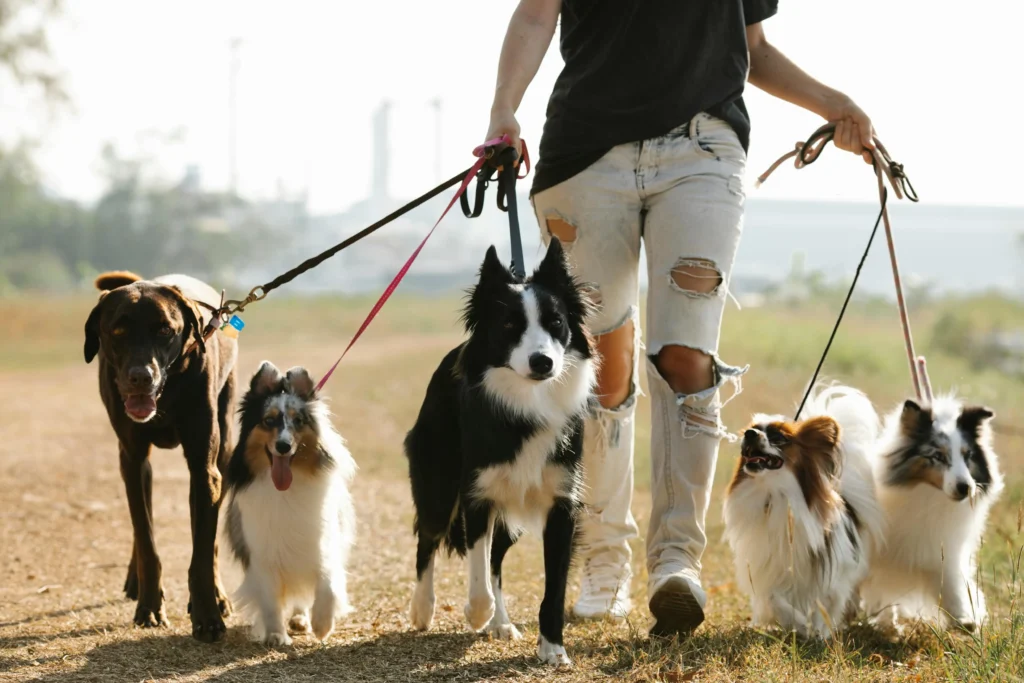
The Leash on Leash Laws
Unlike some states with a single, statewide leash law, South Dakota takes a localized approach. This means that individual cities and counties are responsible for enacting leash laws within their jurisdictions. While there’s no one-size-fits-all rule, most South Dakota municipalities require dogs to be on a leash in public spaces. Here’s the key takeaway: always check with your local animal control agency or municipality to understand the specific leash laws in your area.
Keeping Everyone Safe and Happy
Dog leash laws serve a vital purpose in promoting safety and public health:
- Public Safety: Leashes help prevent dog bites and attacks on other animals and people.
- Animal Control: Leashes make it easier for dog owners to manage their pets and prevent them from running away or causing disruptions.
- Respectful Coexistence: Leashing reduces the risk of your dog disturbing other people or pets enjoying public spaces.
Common Leash Law Elements
While specifics may vary, common themes emerge in South Dakota’s dog leash laws:
- Leash Length Requirements: Many ordinances specify a maximum leash length, often ranging from 6 to 10 feet.
- Designated Off-Leash Areas: Some municipalities have designated dog parks or off-leash areas where dogs can run freely under owner supervision.
- Voice and Leash Control: Even in off-leash areas, maintaining control of your dog with voice commands or a leash is crucial for safety.
Frequently Asked Questions on Dog Leash Laws
Here are some common questions South Dakota dog owners have about leash laws:
- Do puppies need to be leashed? Most leash laws apply to all dogs, regardless of age.
- What happens if I’m caught without a leash? Violating leash laws can result in fines issued by Animal Control officers.
- Are there any exceptions to leash laws? Service dogs trained to assist people with disabilities are generally exempt from leash requirements, but documentation may be required.
Resources for South Dakota Residents
To access the most up-to-date and specific information on dog leash laws in your area, explore these resources:
- Your Local Animal Control Agency: Their website or a direct call can clarify local leash laws and designated off-leash areas.
- Municipal Websites: Many South Dakota cities and counties provide information on dog leash laws online.
- South Dakota Department of Agriculture: They offer general information on responsible pet ownership [invalid URL removed].
Responsible Leash Use for Happy Adventures
Responsible leash use ensures safe and enjoyable outings for you, your dog, and everyone around you:
- Choose the Right Leash: Select a leash of appropriate length and strength for your dog’s size and temperament.
- Maintain Control: Always maintain a firm but gentle grip on the leash to prevent your dog from pulling or lunging.
- Be Mindful of Others: Give ample space to people and animals who may be uncomfortable around dogs, and clean up after your pet promptly.
Dangerous Dog Laws in South Dakota
South Dakota, known for its vast prairies and friendly communities, is a haven for dog lovers. However, even the most beloved canine companion can exhibit aggressive behavior. Understanding South Dakota’s dangerous dog laws is crucial for both dog owners and the public’s safety. These laws aim to protect people from potentially harmful dog bites and ensure responsible ownership practices.

Dangerous Dog Designation
Unlike some states with “one-bite” rules, South Dakota doesn’t have a single bite trigger for declaring a dog dangerous. Here’s the key takeaway: dangerous dog designation in South Dakota is based on a dog’s behavior, not necessarily a history of bites.
Criteria for Dangerous Dog Designation
South Dakota utilizes a two-pronged approach for declaring a dog dangerous:
- Unprovoked Aggressive Behavior: If a dog exhibits unprovoked aggression towards humans or other animals in a public place or on private property with permission, it could be deemed dangerous.
- Examples of unprovoked aggression include biting, attacking, chasing in a threatening manner, or displaying menacing behavior.
- Threat to Public Safety: The severity of the dog’s behavior and its potential to cause harm are critical factors. A nip might not warrant designation, but a serious attack could lead to swift action.
The Role of Animal Control
Animal Control plays a pivotal role in enforcing dangerous dog laws. Here’s what typically happens after a reported incident:
- Investigation: Animal Control officers will investigate the reported aggression, gather evidence, and interview witnesses.
- Hearing: If the evidence suggests a danger to public safety, a hearing may be held to determine if the dog should be declared dangerous.
- Dangerous Dog Designation: If the dog is deemed dangerous, the owner will receive specific requirements for handling and restraining the animal.
Owner Responsibilities for Dangerous Dogs
If your dog is declared dangerous in South Dakota, you can expect the following:
- Muzzle Requirement: Your dog will likely be required to wear a secure muzzle in public spaces.
- Leash Restrictions: Strict leash laws with a maximum length (often 6 feet) and a strong leash will likely be mandated.
- Confinement Requirements: Secure fencing or enclosures may be required to ensure the dog cannot escape and pose a threat.
- Liability Insurance: Carrying liability insurance for your dog might become mandatory.
- Registration: Registration with Animal Control as a dangerous dog is often required.
- Training Recommendations: Animal Control may recommend professional training to address the dog’s aggressive behavior.
Important Considerations
- Appealing the Designation: Dog owners have the right to appeal a dangerous dog designation through a formal hearing process.
- Potential Removal: In extreme cases, Animal Control may order the dog’s removal from the owner’s home and potential euthanasia if the risk to public safety is deemed too high.
Preventing Dangerous Dog Situations
Here are some proactive steps to prevent dog bites and potentially dangerous situations:
- Responsible Training: Proper training and socialization from an early age are crucial for preventing aggression.
- Understanding Breed Tendencies: Research your dog’s breed and understand any inherent behavioral tendencies.
- Recognize Warning Signs: Learn to identify signs of aggression in your dog, like growling, baring teeth, or stiff posture.
- Responsible Ownership: Always supervise your dog when interacting with people or other animals, especially children.
- Avoid High-Risk Situations: If your dog exhibits aggression, avoid triggering situations and seek professional help from a qualified animal behaviorist.
Resources
Here are some helpful resources to learn more about dangerous dog laws and responsible pet ownership in South Dakota:
- South Dakota Department of Agriculture: They offer general information on animal control and responsible pet ownership [invalid URL removed].
- Your Local Animal Control Agency: Contact them for specific details on dangerous dog designation procedures in your area.
- South Dakota Veterinary Medical Association: They can provide resources for finding qualified animal behaviorists or trainers in your area.
Dog Health and Welfare Laws in South Dakota
South Dakota, a state known for its wide-open spaces and friendly communities, is a haven for dog lovers. But with furry companions come big responsibilities. South Dakota, like many states, has laws in place to safeguard canine health and well-being. Understanding these laws ensures you’re providing the proper care for your dog and upholding your role as a responsible pet owner. While there’s no single, comprehensive “dog health and welfare” statute, several laws contribute to a healthy and happy life for your canine friend.
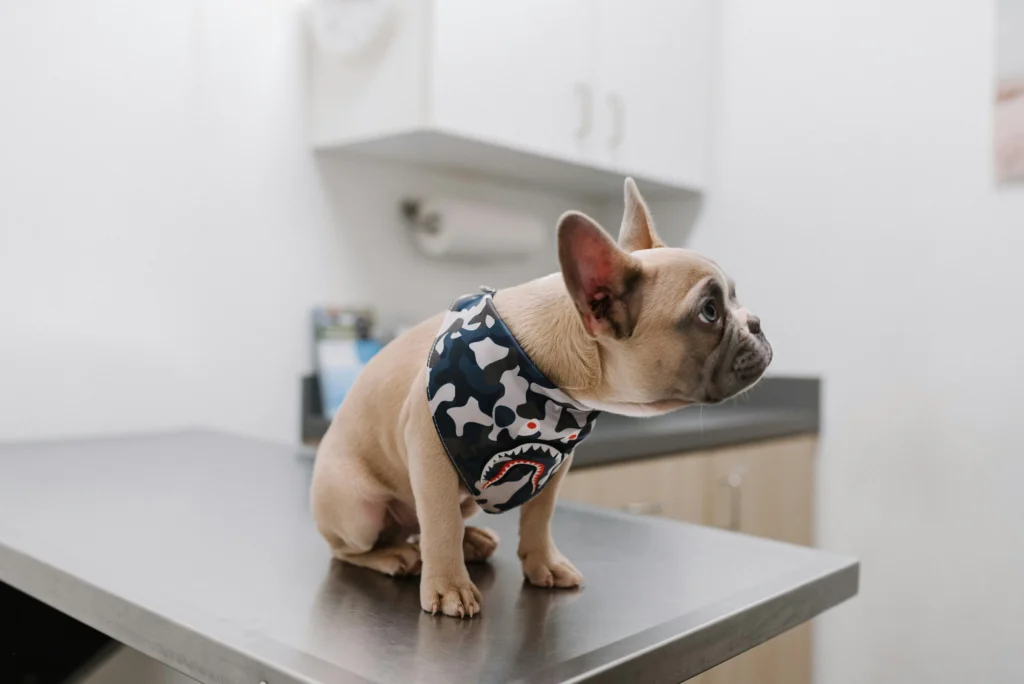
Addressing Animal Cruelty
South Dakota’s primary legal safeguard for animal welfare is found in Title 40 of the South Dakota Codified Laws, Chapter 40-1 – Cruelty, Abuse and Injury to Animals. Here’s the key takeaway: this chapter defines and prohibits acts of cruelty towards animals, including dogs.
Defining Cruelty
South Dakota law goes beyond just physical abuse. Here’s what constitutes cruelty under the statute:
- Intentionally Inflicting Pain: Deliberately causing severe physical pain, injury, or death to a dog is illegal.
- Neglecting Basic Needs: Failing to provide essential needs like food, water, adequate shelter, and veterinary care when necessary is considered neglect.
- Abandonment: Intentionally relinquishing ownership and leaving a dog to fend for itself is prohibited.
The Role of Animal Control
Animal Control plays a vital role in investigating suspected animal cruelty and neglect. Here’s how the process might unfold:
- Reporting Concerns: Anyone can report suspected animal cruelty to Animal Control officers.
- Investigation: Animal Control will investigate the complaint, gather evidence, and assess the dog’s condition.
- Intervention: If cruelty or neglect is confirmed, Animal Control may remove the dog from the owner’s custody and provide necessary care.
- Legal Action: Depending on the severity of the case, legal charges may be filed against the owner.
Specific Laws Impacting Dog Health
While the cruelty statute forms the foundation, other South Dakota laws impact dog health and well-being:
- Rabies Vaccinations: All dogs in South Dakota must be vaccinated against rabies by a licensed veterinarian. Vaccination schedules vary depending on the age of the dog and the type of vaccine used.
- Tethering Restrictions: Some municipalities have ordinances restricting how long a dog can be tethered outdoors. Always check local regulations to ensure proper tethering practices.
- Breeding Regulations: While South Dakota doesn’t have statewide commercial breeding regulations, some municipalities might have specific ordinances for kennels or large-scale breeding operations.
Fulfilling Your Duty as a Responsible Dog Owner
Understanding the law is only part of the equation. Here’s how to ensure your dog’ health and well-being:
- Provide Quality Food and Water: Offer your dog a nutritious diet appropriate for their breed, age, and activity level. Always ensure they have access to clean, fresh water.
- Schedule Regular Veterinary Care: Regular check-ups with a veterinarian are crucial for preventive care, early detection of health issues, and necessary vaccinations.
- Offer Proper Exercise and Stimulation: Exercise keeps your dog physically and mentally healthy. Walks, playtime, and mental stimulation are essential for their well-being.
- Maintain a Safe and Clean Environment: Provide your dog with a clean and comfortable living space, free from hazards and potential dangers.
- Show Your Dog Love and Care: Dogs are social creatures. Offer them affection, positive attention, and training to build a strong bond.
Resources
Here are some helpful resources to learn more about dog health and welfare laws in South Dakota:
- South Dakota Department of Agriculture: They offer general information on animal health and responsible pet ownership [invalid URL removed].
- South Dakota Veterinary Medical Association: They can provide resources for finding qualified veterinarians in your area.
- Your Local Animal Control Agency: Contact them for specific details on animal cruelty reporting procedures and local ordinances impacting dog health.
Dog Public Access Laws in South Dakota
South Dakota, with its wide-open spaces and friendly communities, is a dream destination for dog owners. Whether you’re exploring the majestic Black Hills or strolling down bustling city streets, having your canine companion by your side adds joy to the adventure. However, navigating public spaces with your furry friend requires an understanding of dog public access laws in South Dakota. These laws ensure responsible pet ownership and a harmonious coexistence between dogs, other animals, and the public.

The Local Focus on Dog Public Access
South Dakota doesn’t have a single, statewide law governing dog access to public spaces. Instead, individual cities, counties, and private businesses establish their own regulations. This means the rules for where your dog can (and can’t) go vary depending on location. Here’s the key takeaway: always check with local authorities or business owners before bringing your dog to a public space.
Dog Public Access Laws
While specifics may differ, some common themes emerge in South Dakota’s dog public access landscape:
- Leash Requirements: Most public spaces mandate dogs to be on a leash of a specific length (often 6-10 feet) for safety and control.
- Designated Off-Leash Areas: Some municipalities have established dog parks or off-leash areas where dogs can run freely under owner supervision.
- Restricted Areas: Certain public spaces, like playgrounds, government buildings, or conservation areas, might entirely prohibit dogs.
Frequently Asked Questions on Dog Public Access
Here are some common questions South Dakota dog owners have about public access laws:
- Can I take my dog to restaurants? Generally not. Restaurants are private businesses and can set their own pet policies.
- Are service dogs allowed everywhere? Yes. Federal law (the Americans with Disabilities Act) protects the right of people with disabilities to bring trained service dogs into all public spaces, excluding areas with strict hygiene requirements (like operating rooms).
- What happens if I violate public access laws? Violations might result in fines or warnings from Animal Control officers or business owners.
Resources
To access the most up-to-date and specific information on dog public access laws in your area, explore these resources:
- Your Local Animal Control Agency: Their website or a direct call can clarify public access regulations and designated off-leash areas.
- Municipal Websites: Many South Dakota cities and counties provide information on dog public access laws online.
- Business Websites or Signage: Restaurants, shops, and other businesses often display pet policies on their websites or entrances.
Etiquette for Responsible Dog Owners
Even in dog-friendly areas, responsible pet ownership is crucial:
- Clean Up After Your Dog: Always carry poop bags and dispose of waste properly. Leaving waste behind is not only inconsiderate but can also pose health risks.
- Maintain Voice and Leash Control: Keep your dog under control with voice commands and a leash. Respect the space of other people and animals.
- Be Mindful of Others: Not everyone enjoys being around dogs. If someone appears uncomfortable, give them ample space.
Advocating for Dog-Friendly Access
South Dakota offers a wealth of dog-friendly adventures. Here are some ways to advocate for responsible dog access:
- Support Businesses Welcoming Dogs: Patronize businesses that allow well-behaved dogs. Positive reinforcement encourages dog-friendly policies.
- Promote Responsible Dog Ownership: Educate others about proper leash etiquette and waste clean-up. Responsible dog owners pave the way for greater access.
- Contact Local Authorities: If you believe an area could benefit from a designated off-leash space, respectfully voice your concerns to local officials.
Dog Travel and Transportation Laws in South Dakota
South Dakota, with its breathtaking landscapes and adventurous spirit, is a haven for outdoor enthusiasts – and their furry companions! Whether you’re embarking on a cross-country road trip or a quick weekend getaway, ensuring your dog travels safely and legally is paramount. Understanding South Dakota’s dog travel and transportation laws helps you plan a smooth and enjoyable journey for both you and your canine copilot. Here’s a comprehensive guide to navigating the legalities of traveling with your dog in the “Mount Rushmore State.”

The Leash on Travel Laws
South Dakota doesn’t have a single, overarching law governing dog travel within the state. However, specific regulations might apply depending on the mode of transportation you choose. Here’s the key takeaway: plan ahead and research any potential restrictions or requirements for traveling with your dog by car, plane, or public transportation.
Traveling by Car
South Dakota, like many states, doesn’t have specific laws mandating how to restrain your dog in a moving vehicle. However, animal cruelty laws exist, and failing to secure your dog properly could be considered neglect. Here are some safety tips:
- Crate Training: Consider crate training your dog for safe and secure car travel. Choose a crate appropriate for their size and secure it properly in the vehicle.
- Harness and Seatbelt Tether: Use a properly fitted harness with a car-safe seatbelt tether to restrain your dog in the back seat.
- Pet Barrier: Installing a pet barrier between the passenger and cargo areas can provide additional security and prevent your dog from becoming a distraction while driving.
Additional Considerations for Car Travel
- Vaccinations: Ensure your dog is up-to-date on all essential vaccinations before traveling.
- Identification: Make sure your dog wears a collar with a current ID tag and consider microchipping them for added peace of mind.
- Travel Essentials: Pack plenty of water, food, travel bowls, waste bags, and any medications your dog might need.
- Rest Stops: Schedule frequent rest stops to allow your dog to eliminate, stretch their legs, and rehydrate.
- Temperature Control: Never leave your dog unattended in a parked car, especially during hot or cold weather.
Airline Regulations
If your South Dakota adventure involves air travel, understanding airline pet policies is crucial. Here’s what to expect:
- Contact the Airline: Every airline has its own pet policies, including size restrictions, fees, and specific travel requirements (e.g., health certificates).
- Pet Cargo or Cabin Travel: Airlines typically allow small dogs to travel in the cabin in a carrier that fits under the seat. Larger dogs may need to travel in the cargo hold with specific crate requirements.
- Documentation: Airlines often require a health certificate from your veterinarian and proof of current vaccinations.
Public Transportation Options
While some public transportation options in South Dakota may allow dogs, regulations and restrictions can vary widely. Here’s what to keep in mind:
- Contact the Provider: Reach out to bus companies, train services, or ride-sharing platforms to inquire about their pet policies.
- Size and Breed Restrictions: Some public transportation might have limitations on dog size or breed type.
- Muzzle Requirements: Muzzles might be mandatory for certain breeds or on specific routes.
General Tips for Responsible Dog Travel
- Plan for the Unexpected: Pack a doggy first-aid kit and any medications your dog might need during travel.
- Acclimate Your Dog: If your dog isn’t used to car rides, take them on short practice trips to get them comfortable.
- Maintain a Calm Demeanor: Your dog picks up on your anxiety. Stay calm and confident to ensure a smooth travel experience for both of you.
Resources
Here are some helpful resources for planning safe and legal dog travel in South Dakota:
- South Dakota Department of Agriculture: They offer general information on animal health and responsible pet ownership.
- Your Local Veterinarian: Consult your veterinarian for advice on travel vaccinations, health certificates, and general travel well-being for your dog.
- Airline or Public Transportation Provider Websites: Access specific pet policies and travel requirements for your chosen mode of transportation.
- American Kennel Club (AKC) Travel Guide: The AKC website provides comprehensive resources on traveling with dogs, including airline regulations by carrier.
Dog Housing and Accommodation Laws in South Dakota
South Dakota, known for its sprawling plains and friendly communities, is a welcoming place for both residents and their canine companions. Whether you’re a lifelong resident or a newcomer, finding dog-friendly housing is crucial for a happy life with your furry friend. Understanding South Dakota’s dog housing and accommodation laws empowers you to navigate the rental market and ensure your dog feels at home. Here’s a comprehensive guide to navigating legalities and finding the perfect place for you and your pup.
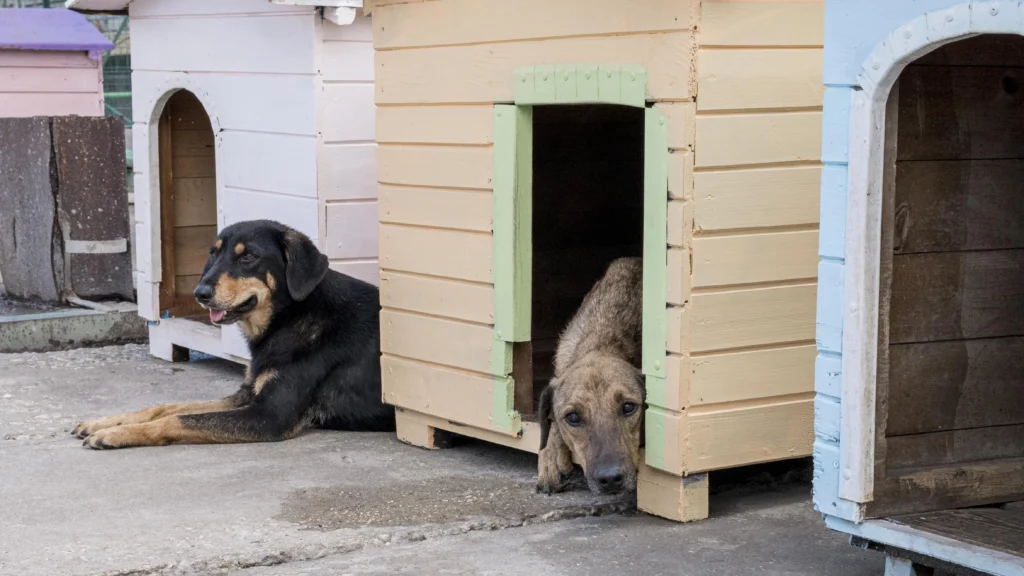
The Leash on Housing Laws
South Dakota doesn’t have a single, statewide law governing dogs in housing. Instead, a combination of federal and local regulations come into play. Here’s the key takeaway:
- Federal Fair Housing Act (FHA): This federal law protects individuals with disabilities from discrimination based on their need for a service animal.
- Local Ordinances: Cities and counties might have specific ordinances related to dog ownership in multi-unit housing complexes.
Fair Housing Act (FHA) and Service Animals
The Fair Housing Act (FHA) prohibits landlords from discriminating against tenants with disabilities based on their need for a service animal. Here’s what this means for dog owners:
- Service Animal vs. Emotional Support Animal (ESA): The FHA protects service animals only, which are dogs trained to perform specific tasks for individuals with disabilities (e.g., guide dogs for the visually impaired, hearing assistance dogs). Emotional support animals (ESAs), which provide emotional comfort, are not covered by the FHA.
- Reasonable Accommodation: Landlords are required to make reasonable accommodations for qualified service animals. This may include waiving pet fees or breed restrictions (with some exceptions).
- Verification of Need: Landlords can request documentation from a licensed medical professional verifying the disability and the service animal’s training and tasks.
Local Ordinances
While the FHA offers protections for service animals, local ordinances can influence dog ownership rules in multi-unit housing complexes. Here’s what to keep in mind:
- Contact Your Local Landlord or Property Management: Always inquire about the specific pet policies of the rental property you’re interested in.
- Potential Restrictions: Landlords may have limitations on the number of pets allowed per unit, breed restrictions (often targeting certain dog breeds with a reputation for aggression), or weight limits.
- Pet Fees and Deposits: Expect pet fees or deposits associated with dog ownership in a rental property.
Dog-Friendly Housing
Here are some strategies to increase your chances of finding dog-friendly housing in South Dakota:
- Start Your Search Early: Allow ample time to find suitable housing that accommodates your furry friend.
- Highlight Your Dog: Showcase your dog’s good behavior and positive attributes in your rental application. Offer references from previous landlords.
- Consider Pet-Friendly Communities: Research neighborhoods or apartment complexes known for being welcoming to dogs.
- Be Prepared to Negotiate: Depending on the rental market, you might be able to negotiate pet fees or deposits.
Resources
Here are some resources to help you navigate dog housing and accommodation in South Dakota:
- South Dakota Department of Agriculture: They offer general information on animal welfare and responsible pet ownership [invalid URL removed].
- Fair Housing Council: The Fair Housing Council investigates housing discrimination complaints. You can find your local council through the Department of Housing and Urban Development (HUD) website.
- Local Animal Shelters and Rescue Organizations: They might maintain lists of pet-friendly rentals in your area.
- Online Rental Listing Platforms: Many online platforms allow searches for pet-friendly rentals with specific filters.
General Tips for Responsible Dog Ownership
- Maintain a Clean and Well-Behaved Dog: Regular grooming, proper waste disposal, and obedience training ensure a positive impact on your living environment.
- Respect House Rules and Community Guidelines: Adhere to pet noise regulations, leash requirements in common areas, and any other pet-related rules outlined in your lease agreement or building guidelines.
- Communicate with Your Landlord: Open communication with your landlord about your dog builds trust and fosters a positive relationship.
Dog Adoption and Sale Laws in South Dakota
South Dakota, known for its wide-open spaces and friendly communities, is a haven for dog lovers. Whether you’re seeking a loyal companion from a shelter or considering purchasing a purebred pup from a breeder, understanding South Dakota’s dog adoption and sale laws is crucial. These laws ensure responsible pet ownership practices and the welfare of dogs throughout their lives. While South Dakota doesn’t have a single, comprehensive statute governing dog adoption and sales, several key regulations come into play.

Responsible Practices for Shelters and Rescues
South Dakota has a dedicated network of animal shelters and rescue organizations working tirelessly to find loving homes for homeless dogs. Here’s what to expect when adopting a dog in South Dakota:
- Adoption Process: Shelters and rescues typically have an adoption process that may involve an application, reference checks, and a meet-and-greet with the dog.
- Adoption Fees: Adoption fees vary but often cover spaying/neutering, vaccinations, and microchipping.
- Health Considerations: Shelters and rescues will disclose any known health issues with the dog. Schedule a veterinary checkup after adoption to ensure your new furry friend’s well-being.
Breeder Regulations
If you’re looking for a specific breed, South Dakota has reputable breeders who adhere to responsible breeding practices. Here’s what to know about buying a dog from a breeder in South Dakota:
- Breeder Reputation: Research the breeder’s reputation and ensure they prioritize the health and well-being of their dogs.
- Kennel Inspections: Some municipalities might require breeders to obtain kennel licenses and undergo inspections.
- Contracts and Health Guarantees: Reputable breeders provide written contracts outlining the sale, including health guarantees for the puppy.
Preventing Puppy Mills
South Dakota, like many states, aims to prevent puppy mills – large-scale commercial breeding operations that prioritize profit over animal welfare. Here’s how the law helps:
- Focus on Animal Welfare: South Dakota cruelty to animals statutes (Title 40 of the South Dakota Codified Laws, Chapter 40-1) apply to breeders. This discourages inhumane breeding practices.
- Considering Source: While South Dakota doesn’t have specific puppy mill laws, researching a breeder’s practices helps ensure your dog comes from a responsible source.
General Tips for Responsible Dog Acquisition
Whether adopting or buying a dog, responsible pet ownership starts with informed choices:
- Meet the Dog: Always meet the dog in person before finalizing the adoption or purchase.
- Ask Questions: Don’t hesitate to ask questions about the dog’s health history, temperament, and behavior.
- Consider Your Lifestyle: Choose a dog that fits your lifestyle and living situation.
- Prepare Your Home: Before bringing your new dog home, ensure your living space is puppy-proofed and stocked with essential supplies.
Resources
Here are some resources to help you find a dog in South Dakota, whether through adoption or a reputable breeder:
- South Dakota Department of Agriculture: They offer general information on animal welfare and responsible pet ownership.
- South Dakota Animal Shelter Alliance: This organization connects adopters with shelters and rescues across the state.
- American Kennel Club (AKC) Marketplace: Search for AKC-registered breeders by breed.
- Local Animal Shelters and Rescue Organizations: Visit their websites or shelters in person to meet adoptable dogs.
Dog Park and Recreation Laws in South Dakota
South Dakota, with its vast prairies and adventurous spirit, is a paradise for outdoor enthusiasts – and their canine companions! But venturing out with your furry friend requires understanding the legalities of dog parks and recreation areas. This guide explores dog park and recreation laws in South Dakota, empowering you to enjoy safe and responsible outings with your pup.

Local Control Over Dog Recreation
South Dakota doesn’t have a single, statewide law governing dog access to recreation areas. Instead, individual cities, counties, and private dog park operators establish their own regulations. This means the rules for where your dog can (and can’t) go vary depending on location. Here’s the key takeaway: always research and confirm the specific dog park and recreation area regulations before heading out with your dog.
Dog Park Rules
While specifics might differ, some general themes emerge in South Dakota’s dog park landscape:
- Leash Requirements: Most public parks require dogs to be on a leash (often 6-10 feet) except in designated off-leash areas like dog parks.
- Designated Off-Leash Areas: Many municipalities have established dog parks where dogs can run freely under owner supervision. These parks often have designated areas for small and large dogs.
- Park Etiquette and Safety: General park rules apply, such as cleaning up after your dog and maintaining control of your pet at all times. Respecting the space of other dogs and park users is crucial.
Frequently Asked Questions on Dog Park and Recreation
Here are some common questions South Dakota dog owners have about dog park and recreation access:
- Can I take my dog on hiking trails? Some trails might allow leashed dogs, while others might be completely off-limits. Always check trail signage or park websites for clarification.
- What happens if my dog gets into a fight at a dog park? Both dog owners involved might be responsible for any injuries or damages sustained. Familiarize yourself with the park’s liability policies.
- Are there any dog breed restrictions in dog parks? Some dog parks might have restrictions on certain breeds based on reputation or size.
Resources for South Dakota Dog Owners
To access the most up-to-date and specific information on dog park and recreation area regulations in your area, explore these resources:
- Your Local Animal Control Agency: Their website or a direct call can clarify park access rules and locations of designated off-leash areas.
- Municipal Websites: Many South Dakota cities and counties provide information on dog park regulations and park leash laws online.
- Dog Park Websites or Signage: Local dog parks often have websites or informational signs posted at the entrance with specific park rules.
Etiquette for Responsible Dog Owners
Even in designated off-leash areas, responsible pet ownership is crucial:
- Clean Up After Your Dog: Always carry poop bags and dispose of waste properly. Leaving waste behind is not only inconsiderate but can also pose health risks.
- Maintain Voice and Leash Control (When Required): Even in off-leash areas, ensure you can control your dog with voice commands. In leash-required areas, keep your dog on a leash at all times.
- Be Mindful of Others: Not everyone enjoys being around dogs. If someone appears uncomfortable, give them ample space and leash your dog if necessary.
- Socialization is Key: Dog parks can be great places for canine socialization. However, ensure your dog is well-socialized and can interact appropriately with other dogs before entering an off-leash area.
Championing Dog-Friendly Recreation
South Dakota offers a wealth of outdoor adventures for you and your canine companion. Here are some ways to advocate for responsible dog access to recreation areas:
- Support Parks with Off-Leash Areas: Patronize parks that provide designated off-leash spaces for dogs.
- Promote Responsible Dog Ownership: Educate others about proper leash etiquette, waste clean-up, and dog park etiquette.
- Contact Local Authorities: If you believe an area could benefit from a designated off-leash space, respectfully voice your concerns to local officials.
- Volunteer at Dog Parks: Many dog parks rely on volunteers for maintenance and upkeep. Contributing your time strengthens the dog park community.
Dog Food and Nutrition Laws in South Dakota
South Dakota, known for its sprawling farmlands and focus on agriculture, is a state where pet health is a priority. But with a vast array of dog food options available, ensuring your furry friend receives a nutritious and safe diet can be overwhelming. This guide explores dog food and nutrition laws in South Dakota, empowering you to make informed choices about your dog’s food.

Consumer Protection
South Dakota doesn’t have specific laws directly regulating the ingredients or nutritional content of commercially available dog food. However, the state enforces federal regulations established by the Association of American Feed Control Officials (AAFCO). Here’s the key takeaway: the AAFCO guidelines provide a framework for dog food labeling and manufacturing, ensuring basic consumer protection.
AAFCO Label
The AAFCO guidelines mandate specific information on dog food labels, empowering you to make informed choices for your dog’s diet. Here’s what to look for:
- Product Name and Statement of Purpose: Identifies the food and clarifies if it’s intended for complete and balanced nutrition or as a supplement.
- Guaranteed Analysis: Lists the minimum percentages of protein, fat, fiber, and moisture content in the food.
- Ingredient List: Ingredients are listed in descending order by weight, with the first ingredient being the most prevalent.
- Nutritional Adequacy Statement: Indicates if the food meets AAFCO’s nutrient profiles for specific life stages (puppy, adult, senior) or activity levels.
Additional Considerations
While AAFCO guidelines provide a foundation, consider these additional factors when choosing dog food:
- Breed and Age: Dietary needs vary depending on your dog’s breed and life stage. Consult your veterinarian for specific recommendations.
- Activity Level: Active dogs might require food with higher protein and fat content for sustained energy.
- Health Conditions: Certain dog food formulas cater to specific health concerns, like allergies or digestive sensitivities.
Reliable Resources
Here are some resources to help you navigate dog food choices and ensure your furry friend receives a healthy diet:
- South Dakota State University (SDSU) Extension: They offer resources on pet nutrition and choosing the right dog food.
- Your Local Veterinarian: They provide personalized dietary guidance based on your dog’s specific needs and health conditions.
- AAFCO Website: Access information on AAFCO dog food labeling guidelines.
- Online Review Platforms: Read reviews of various dog food brands and formulas, but prioritize advice from veterinarians over anecdotal experiences.
Recalls and Foodborne Illness
While uncommon, dog food recalls can occur due to contamination or nutritional imbalances. Here’s how to stay informed:
- Monitor the FDA Website: The U.S. Food and Drug Administration (FDA) website lists any dog food recalls and provides information on affected products.
- Contact Your Veterinarian: If you suspect your dog’s food might be linked to a recall, consult your veterinarian immediately.
- Signs of Foodborne Illness: Be aware of potential signs of foodborne illness in your dog, like vomiting, diarrhea, lethargy, or loss of appetite.
Responsible Feeding Practices
Beyond choosing the right food, responsible feeding practices ensure your dog thrives:
- Portion Control: Overfeeding can lead to obesity and other health problems. Follow the feeding guidelines on the dog food package or consult your veterinarian for specific recommendations.
- Fresh Water Access: Ensure your dog has access to clean, fresh water at all times.
- Regular Veterinary Checkups: Regular veterinary checkups allow for monitoring of your dog’s weight and overall health, including any potential dietary concerns.
Dog Health and Veterinary Care Laws in South Dakota
South Dakota, known for its wide-open spaces and friendly communities, is a haven for dog lovers. But keeping your furry friend happy and healthy requires responsible pet ownership and understanding the legalities surrounding animal healthcare. This guide explores dog health and veterinary care laws in South Dakota, empowering you to make informed decisions for your canine companion’s well-being.

The Leash on Veterinary Laws
South Dakota doesn’t have specific laws mandating veterinary care for dogs. However, the state enforces animal cruelty statutes outlined in Title 40 of the South Dakota Codified Laws, Chapter 40-1. These laws aim to prevent neglect and abuse of animals, including dogs. Here’s the key takeaway: failing to provide necessary veterinary care to prevent suffering could be considered animal cruelty under these statutes.
Animal Cruelty Laws
South Dakota’s animal cruelty laws define cruelty as inflicting unnecessary pain, suffering, or death on an animal. Here’s how these laws relate to dog health:
- Veterinary Care in Case of Injury or Illness: If your dog suffers an injury or illness, seeking veterinary care promptly is crucial. Neglecting to do so could be considered animal cruelty.
- Abandonment: Abandoning your dog is not only cruel but also illegal under South Dakota’s animal cruelty statutes.
- Providing Basic Needs: The laws require owners to provide their dogs with basic necessities like food, water, shelter, and proper sanitation.
Responsible Pet Ownership and Preventative Care
While the law sets a baseline, responsible dog ownership extends beyond meeting minimum requirements. Here are some key aspects of preventative veterinary care for your dog:
- Vaccinations: Regular vaccinations protect your dog from preventable diseases like rabies, distemper, and parvovirus.
- Parasite Prevention: Implementing parasite control measures like flea and tick medication helps safeguard your dog’s health and your home environment.
- Spaying/Neutering: Spaying or neutering your dog can offer numerous health benefits and contribute to responsible pet ownership by preventing unwanted litters.
- Regular Checkups: Scheduling regular veterinary checkups allows for early detection and treatment of potential health issues.
Finding the Right Veterinarian in South Dakota
Choosing a veterinarian who understands your dog’s needs is crucial for their well-being. Here are some tips for finding a qualified vet in South Dakota:
- Ask for Recommendations: Talk to friends, family, or local animal shelters for recommendations on reputable veterinarians in your area.
- Consider Location and Availability: Choose a veterinarian conveniently located and with appointment schedules that fit your lifestyle.
- Research and Visit: Research the veterinarian’s qualifications and experience, and if possible, schedule a consultation visit to get a feel for their practice.
Resources
Here are some resources to help you navigate dog health and veterinary care in South Dakota:
- South Dakota Veterinary Medical Association (SDVMA): The SDVMA website provides information on finding a veterinarian in your area.
- American Veterinary Medical Association (AVMA): The AVMA website offers a wealth of resources on dog health and responsible pet ownership.
- South Dakota State University (SDSU) College of Agriculture & Applied Sciences: The College offers resources on animal health and responsible pet care.
Financial Considerations and Pet Insurance
Veterinary care can be expensive. Here are some ways to manage costs:
- Budgeting for Veterinary Care: Factor potential veterinary expenses into your pet ownership budget.
- Exploring Payment Options: Many veterinary clinics offer payment plans or accept pet insurance.
- Considering Pet Insurance: Pet insurance can help offset the cost of unexpected veterinary bills. Research different plans and choose one that best fits your dog’s needs and your budget.
Building a Healthy Life Together
South Dakota prioritizes animal welfare, and responsible pet owners go beyond legal requirements. Here’s how to build a healthy and happy life with your canine companion:
- Prioritize Preventative Care: Regular veterinary checkups, vaccinations, and parasite control are crucial for your dog’s long-term health.
- Maintain a Healthy Lifestyle: Provide your dog with a balanced diet, regular exercise, and mental stimulation.
Dog Identification and Microchipping Laws in South Dakota
South Dakota, with its wide-open spaces and adventurous spirit, is a paradise for dog lovers. But ensuring your furry friend stays safe and finds their way back home if they get lost requires proper identification. This guide explores dog identification and microchipping laws in South Dakota, empowering you to make informed choices about keeping your canine companion connected.

The Leash on Identification Laws
South Dakota doesn’t have a statewide law mandating specific forms of dog identification. However, rabies vaccination is mandatory for all dogs over three months of age. Here’s the key takeaway: a rabies vaccination tag worn by your dog is the most common form of legally required identification in South Dakota.
Additional Identification Options
While a rabies tag is essential, consider these additional forms of identification for your dog:
- Collar and ID Tag: A sturdy collar with a clearly visible ID tag containing your dog’s name, phone number, and rabies vaccination tag information is crucial.
- Engraved Tags: Engraved tags offer a more permanent solution compared to printed tags that might fade over time.
- Harnesses with ID Pouches: Harnesses often have built-in pouches to hold ID tags, offering an alternative to collars.
A Permanent Identification Solution
Microchipping is a safe and permanent identification method for dogs. Here’s what you need to know:
- Microchip Implantation: A veterinarian implants a tiny microchip under your dog’s skin between the shoulder blades. The microchip contains a unique identification number.
- Microchip Scanner: If your dog gets lost and ends up at a shelter or veterinary clinic, a scanner can read the microchip’s unique identification number, revealing your contact information.
- Microchip Registration: Microchipping is only effective if the microchip is registered with a reputable database containing your current contact information.
Microchipping Laws in South Dakota
South Dakota doesn’t have a law mandating microchipping for all dogs. However, some municipalities might have ordinances encouraging or requiring microchipping. Here’s what to do:
- Check with Your Local Authorities: Contact your local animal control office or municipality to inquire about any microchipping regulations in your area.
- Consider the Benefits: Even if not mandated, microchipping offers a reliable and permanent identification solution, increasing the chances of your dog being reunited with you if they get lost.
Resources
Here are some resources to help you microchip your dog in South Dakota:
- Your Local Veterinarian: Most veterinarians offer microchipping services and can guide you through the registration process.
- Animal Shelters and Rescue Organizations: They might offer microchipping services at discounted rates or during adoption events.
- American Kennel Club (AKC) Reunite Program: The AKC Reunite program offers microchipping and registration services.
Keeping Your Contact Information Updated
The effectiveness of microchipping relies on having accurate and up-to-date contact information associated with your dog’s microchip. Here’s how to ensure your information stays current:
- Update Your Registration: If you move or change your phone number, update your contact information promptly with the microchip registry company.
- Consider Multiple Registries: While not mandatory, registering your dog’s microchip with multiple databases can increase the chances of a successful reunion if the primary registry experiences technical difficulties.
Responsible Dog Ownership
Beyond legal requirements, responsible dog ownership means ensuring your furry friend is easily identifiable:
- Maintain Proper Identification: Ensure your dog’s collar, ID tag, and rabies tag are always worn and current.
- Microchip Early: Consider microchipping your dog at a young age for permanent identification throughout their life.
- Spread the Word: Inform family, friends, and neighbors about your dog’s microchip information in case they encounter your lost pet.
Dog Breeding and Genetics Laws
South Dakota, known for its sprawling farmlands and rich agricultural heritage, is a breeding ground for many things, including cherished canine companions. But if you’re considering entering the world of dog breeding, understanding the legalities and responsible practices is crucial. This guide explores dog breeding and genetics laws in South Dakota, empowering you to make informed decisions for your breeding program and the well-being of future generations of puppies.

The Legal Landscape
South Dakota doesn’t have a single, comprehensive law governing dog breeding practices. However, several regulations come into play to ensure animal welfare:
- Animal Cruelty Laws: Title 40 of the South Dakota Codified Laws, Chapter 40-1, outlines animal cruelty statutes. These laws prohibit inhumane breeding practices that prioritize profit over the health and well-being of breeding dogs.
- Kennel Licensing (Optional): Some South Dakota municipalities might require breeders to obtain kennel licenses and undergo inspections to ensure proper kennel facilities and animal care practices.
The Pillars of Responsible Dog Breeding
While South Dakota doesn’t have specific dog breeding regulations, responsible breeders adhere to high ethical standards:
- Breeder Reputation: Research potential breeding stock from reputable breeders who prioritize genetic health testing, breed standards, and responsible breeding practices.
- American Kennel Club (AKC) Guidelines: The AKC offers guidelines for ethical dog breeding, including health testing recommendations and responsible breeding practices. While not mandatory, these guidelines provide a valuable framework.
- Kennel Club Registrations: Consider breeding dogs registered with reputable kennel clubs like the AKC, which often have stricter breeding guidelines and health testing requirements.
Building Healthy Bloodlines
Responsible dog breeding prioritizes the health and well-being of future generations. Here’s why genetics play a crucial role:
- Genetic Health Testing: Reputable breeders conduct genetic health testing on breeding stock to screen for breed-specific genetic disorders. This helps avoid passing on these conditions to future puppies.
- Pedigree Analysis: Understanding the pedigree of breeding dogs allows breeders to avoid breeding practices that could lead to inbreeding and potential health problems.
- Breed Standards: Following established breed standards ensures puppies conform to breed characteristics while prioritizing health and temperament.
The Importance of Responsible Breeding Practices
Responsible dog breeding goes beyond just producing puppies. Here’s what it entails:
- Proper Care for Breeding Dogs: Breeding dogs require proper nutrition, veterinary care, exercise, and socialization throughout their breeding years.
- Early Socialization of Puppies: Providing puppies with early socialization experiences from a young age sets them up for success in their future homes.
- Responsible Placement of Puppies: Reputable breeders screen potential puppy buyers to ensure responsible pet ownership and a good fit for the puppies.
Resources for Responsible Dog Breeders in South Dakota
Here are some resources to help you navigate responsible dog breeding practices in South Dakota:
- South Dakota Veterinary Medical Association (SDVMA): The SDVMA website offers resources on animal health and responsible pet ownership, including information on genetic health testing.
- American Kennel Club (AKC): The AKC website provides information on ethical breeding practices, breeder resources, and health testing recommendations.
- South Dakota State University (SDSU) College of Agriculture & Applied Sciences: The College offers resources on animal breeding practices and animal health.
Avoiding Puppy Mills
South Dakota, like many states, aims to prevent puppy mills – large-scale commercial breeding operations that prioritize profit over animal welfare. Here are some ways to avoid supporting puppy mills:
- Do Your Research: Research breeders thoroughly before purchasing a puppy. Look for breeders with good reputations, positive reviews, and a focus on responsible breeding practices.
- Visit the Breeder: Consider visiting the breeder’s facility to assess the living conditions of the breeding dogs and puppies.
- Ask Questions: Don’t hesitate to ask breeders detailed questions about their breeding practices, health testing procedures, and puppy care.
Dog Environmental Impact Laws in South Dakota
South Dakota, with its wide-open spaces and stunning natural beauty, is a haven for outdoor enthusiasts – and their canine companions! But with responsible pet ownership comes the responsibility of minimizing your dog’s environmental impact. This guide explores dog environmental impact and related regulations in South Dakota, empowering you to be a conscientious dog owner and steward of the environment.
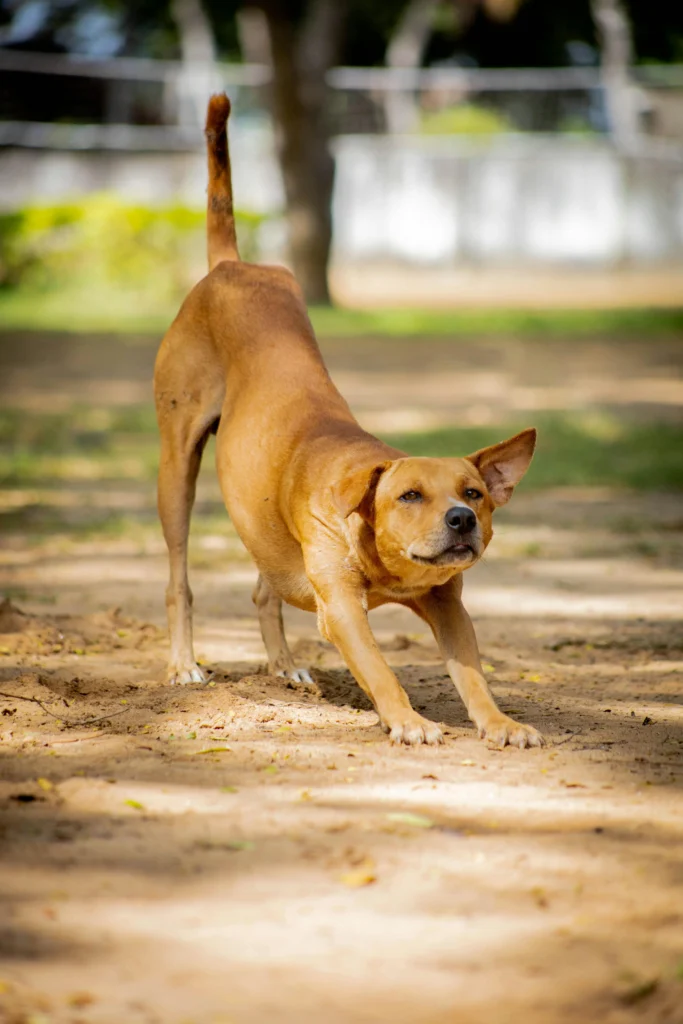
The Bigger Picture of Dog Environmental Impact
While dog waste is a significant concern, the environmental impact of dogs goes beyond leaving a mess on the trail. Here are some key areas to consider:
- Waste Management: Improperly disposed-of dog waste can contaminate water sources and harm wildlife.
- Habitat Disruption: Off-leash dogs can disrupt sensitive ecosystems, disturb wildlife nesting grounds, and scare native animals.
- Water Pollution: Dog waste left on the ground can wash into waterways, contributing to bacteria and nutrient pollution.
Regulations for Responsible Dog Ownership
South Dakota doesn’t have specific laws directly addressing dog environmental impact. However, existing regulations and responsible pet ownership practices can minimize your dog’s footprint:
- Leash Laws and Poop Scooping Requirements: Many South Dakota municipalities have leash laws in public spaces and parks. Additionally, some areas might have specific regulations requiring dog owners to clean up after their pets.
- Respecting Wildlife Habitat Closures: Certain areas in South Dakota might have seasonal closures or restrictions on dog access to protect sensitive wildlife habitats. Always research and respect these designated areas.
Championing Responsible Dog Ownership Practices
While laws provide a framework, responsible pet ownership goes beyond legal requirements:
- Always Carry Poop Bags: Make picking up after your dog a routine part of every walk. Double-bag waste and dispose of it properly in designated waste bins.
- Respect Leash Laws: Leash laws exist for a reason. Keeping your dog leashed protects wildlife, reduces the risk of altercations with other dogs, and ensures your pet’s safety.
- Leave No Trace Principles: Apply “Leave No Trace” principles to outings with your dog. Minimize your overall impact by staying on designated trails, packing out all waste (including used poop bags), and respecting wildlife habitats.
Building Eco-Conscious Dog Walking Habits
Here are some additional tips for minimizing your dog’s environmental impact during walks and adventures:
- Choose Eco-Friendly Poop Bags: Opt for biodegradable poop bags that decompose naturally, reducing waste in landfills.
- Train Your Dog for Off-Leash Control: If you plan to hike in designated off-leash areas, ensure your dog has excellent recall and can be controlled reliably without a leash to minimize disruption to wildlife.
- Educate Others: Be a role model for responsible dog ownership. Share your knowledge about dog environmental impact and encourage others to adopt eco-conscious pet practices.
Supporting Environmental Stewardship Initiatives
There are many ways to get involved in environmental stewardship with your dog by your side:
- Volunteer with Conservation Organizations: Several organizations in South Dakota work towards habitat preservation and wildlife protection. Volunteering with your dog (in appropriate settings) can be a rewarding way to give back.
- Support Dog-Friendly Parks and Trails: Advocate for the creation and maintenance of dog-friendly parks and trails that offer responsible off-leash opportunities while minimizing environmental impact.
Dog Behavioural Training Laws in South Dakota
South Dakota, with its wide-open spaces and friendly communities, is a haven for dog owners. But ensuring your furry friend thrives in this environment requires proper training and responsible behavior. This guide delves into dog behavioral training laws and resources in South Dakota, empowering you to raise a well-mannered canine companion.
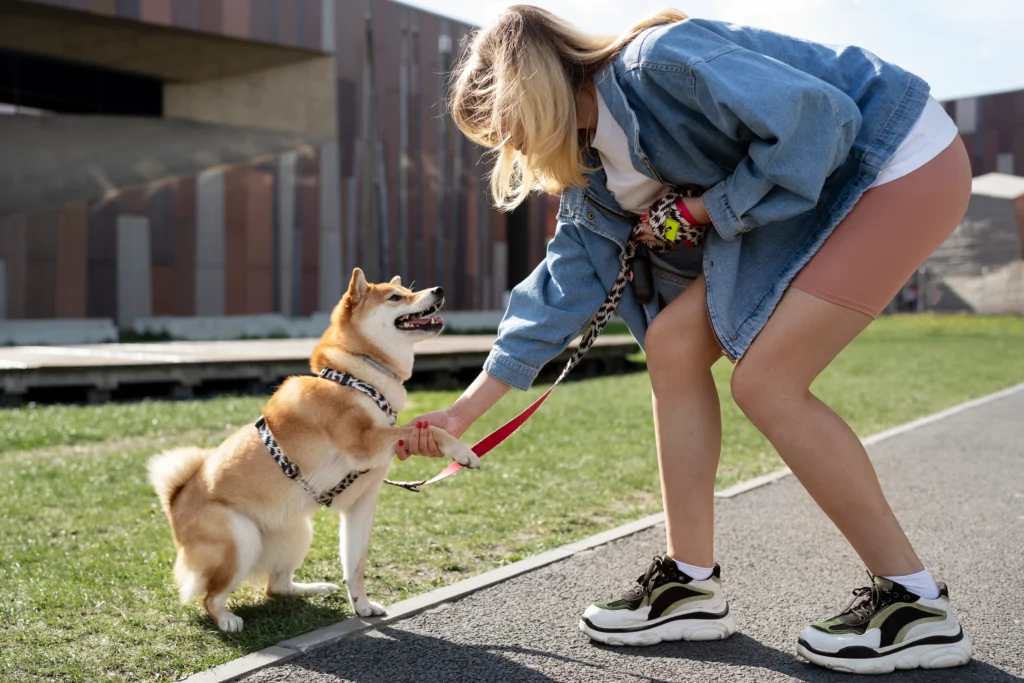
The Legal Landscape
South Dakota doesn’t have specific laws mandating dog behavioral training. However, animal cruelty statutes outlined in Title 40 of the South Dakota Codified Laws (Chapter 40-1) come into play. Here’s the key takeaway: failing to address severe behavioral issues that pose a threat to public safety or animal welfare could be considered animal cruelty under these laws.
Shaping Well-Behaved Canine Citizens
Responsible dog ownership goes beyond legal mandates. Here’s why dog behavioral training is crucial:
- Safety for All: Proper training promotes good manners and obedience, reducing the risk of bites, leash aggression, or other behavior issues that could harm people or other animals.
- Improved Quality of Life: A well-trained dog is a happier dog. Training fosters communication between you and your canine companion, strengthening your bond and leading to a more fulfilling life together.
- Community Harmony: Respectful canine citizens enhance the overall experience for everyone in public spaces like parks and trails.
Different Training Approaches
There’s no “one size fits all” approach to dog training. Here are some popular methods:
- Positive Reinforcement Training: This method rewards desired behaviors, fostering happy and motivated learning in your dog.
- Clicker Training: Clicker training uses a clicker sound to mark desired behaviors, followed by a reward, creating a clear communication system between you and your dog.
- Leash Training: Teaching your dog good leash manners is crucial for safe walks and respectful interactions with others in public spaces.
Choosing a qualified dog trainer can significantly impact your training journey. Here are some tips:
Finding the Right Dog Trainer in South Dakota
- Consider Training Style: Research different training methodologies and find a trainer whose approach aligns with your dog’s needs and your own preferences.
- Seek Certification: Look for trainers certified by reputable organizations like the Certification Council for Professional Dog Trainers (CCPDT).
- Read Reviews and Ask for Recommendations: Research local trainers online and ask veterinarians, friends, or family for recommendations.
Resources
Here are some resources to help you navigate dog behavioral training in South Dakota:
- South Dakota Veterinary Medical Association (SDVMA): The SDVMA website might offer resources on dog training and behavior.
- American Kennel Club (AKC) Training Resources: The AKC website provides information on different training methods, finding a trainer, and AKC S.T.A.R. Puppy programs.
- Association of Professional Dog Trainers (APDT): The APDT website offers resources on finding qualified trainers and different training approaches.
Additional Considerations
While many training needs can be addressed through general obedience training, some dogs might require specialized help for specific behavioral problems:
- Severe Aggression: If your dog exhibits severe aggression towards people or other animals, consult a certified animal behaviorist or veterinarian specializing in behavior.
- Separation Anxiety: Dogs with separation anxiety might need specific training techniques to address this issue.
- Destructive Behaviors: Chewing, digging, or excessive barking could be signs of underlying issues. Consult a trainer or behaviorist to develop a solution.
Dog Entertainment and Work Laws in South Dakota
South Dakota, known for its expansive landscapes and strong sense of community, prioritizes the welfare of animals, including beloved canine companions. This guide explores dog protection and rescue laws in South Dakota, empowering you to understand your role in ensuring the safety and well-being of all dogs.

The Laws on Leashes:
South Dakota doesn’t have a statewide leash law. However, many municipalities within the state have leash laws in place for public spaces like parks, trails, and sidewalks. Here’s the key takeaway: Always check leash laws in your area to ensure your dog is leashed when required and for their safety.
A Look at Anti-Cruelty Statutes
Title 40 of the South Dakota Codified Laws (Chapter 40-1) outlines animal cruelty statutes. These laws prohibit acts of cruelty towards animals, including dogs. Here’s how these laws protect dogs:
- Neglect and Abuse: Failing to provide necessary food, water, shelter, and veterinary care can be considered animal cruelty.
- Abandonment: Abandoning a dog is illegal and cruel under South Dakota law.
- Inflicting Unnecessary Pain or Suffering: Any act that intentionally inflicts unnecessary pain or suffering on a dog is prohibited.
TheRole in Dog Protection
Beyond legal mandates, responsible dog ownership is key to protecting your furry friend:
- Provide for Your Dog’s Needs: Ensure your dog has access to proper nutrition, clean water, safe shelter, and regular veterinary care.
- Supervise Your Dog: Keep your dog leashed in designated areas and maintain control to prevent them from getting into dangerous situations.
- Report Animal Cruelty: If you witness suspected animal cruelty, report it immediately to animal control or law enforcement officials.
Championing Rescue Efforts
South Dakota has numerous animal shelters dedicated to rescuing and rehoming dogs in need. Here’s why shelters are crucial:
- Providing Refuge: Shelters offer safe havens for lost, abandoned, or surrendered dogs.
- Adoption Opportunities: Animal shelters connect wonderful dogs with loving forever homes.
- Community Education: Shelters often provide resources and education on responsible dog ownership and pet care.
Resources for Dog Rescue and Protection in South Dakota
Here are some resources to help you get involved in dog rescue efforts or report animal cruelty:
- South Dakota Animal Control Officers Association: They might offer resources on reporting animal cruelty and connect you with local animal control agencies .
- South Dakota Humane Society: They advocate for animal welfare and operate shelters across the state.
- The American Society for the Prevention of Cruelty to Animals (ASPCA): The ASPCA website provides information on animal cruelty prevention and reporting resources.
Dog Entertainment and Work Laws
South Dakota offers a variety of ways for you and your dog to have fun and even work together. Here’s an overview of relevant laws and considerations:
Dog Entertainment
- Dog Parks: Many South Dakota communities have dog parks where dogs can socialize and play off-leash in designated areas.
- Dog-Friendly Activities: Check local regulations for dog-friendly hiking trails, restaurants with outdoor patios, or events that welcome canine companions.
- Always Be Responsible: Even in dog-friendly areas, ensure your dog is well-behaved, leashed when required, and supervised to prevent any issues.
Dog Work
- Service Animals: South Dakota follows the Americans with Disabilities Act (ADA) guidelines regarding service animals. Service animals are specially trained to assist people with disabilities and are allowed access to public spaces.
- Working Dogs: Certain dog breeds excel in specific working roles, like assisting law enforcement, search and rescue, or livestock herding.
- Verifying Regulations: Always research and comply with any local regulations or licensing requirements for working dogs in your area.
Dog Entertainment and Work Laws in South Dakota
South Dakota, with its wide-open spaces and adventurous spirit, is a haven for dog lovers. But the relationship between humans and canines extends beyond walks and playtime. Technology offers innovative ways to entertain, train, and even monitor your furry friend. This guide explores dog entertainment and technology laws in South Dakota, empowering you to make informed choices about incorporating technology into your dog’s life.

Wagging Tails and Widescreen Fun: The World of Dog Entertainment
South Dakota doesn’t have specific laws regulating dog entertainment products like interactive toys or puzzle feeders. However, responsible pet ownership remains crucial:
- Safety First: Choose dog entertainment products made from safe, non-toxic materials appropriate for your dog’s size and chewing habits.
- Supervision Matters: Even with seemingly safe toys, supervise your dog during playtime to prevent accidental ingestion or choking hazards.
- Variety is Key: Rotate dog entertainment options to keep your furry friend mentally stimulated and prevent boredom.
Dog-Friendly Activities with Technology
Technology can enhance your dog’s outdoor adventures in South Dakota:
- GPS Tracking Collars: These collars offer peace of mind by allowing you to track your dog’s location during hikes or off-leash adventures in designated areas.
- Interactive Dog Walking Apps: Apps can turn your walks into treasure hunts or gamified experiences, keeping your dog engaged and motivated.
- Dog-Friendly Business Finders: Apps and websites can help you locate dog-friendly restaurants with outdoor patios, hiking trails that welcome canine companions, or even dog-friendly events.
South Dakota doesn’t have specific laws regulating pet tech products. However, general consumer protection laws apply:
The Legal Leash on Dog Technology
- Product Safety: Products should comply with safety standards set by federal agencies like the Consumer Product Safety Commission (CPSC) to minimize risks of injuries or malfunctions.
- False Advertising: Be wary of misleading advertising claims and research products thoroughly before purchasing.
Emerging Technologies:
Technology is revolutionizing dog healthcare:
- Telemedicine for Pets: Telemedicine consultations with veterinarians might become more prevalent, offering flexibility for routine checkups or consultations.
- Wearable Health Monitors: Smart collars or wearable trackers can monitor your dog’s vital signs, activity levels, and sleep patterns, potentially providing early warnings of health concerns.
- Remote Training Tools: Certain technologies might assist in remote training sessions, but responsible supervision and in-person training remain crucial.
The Legal Landscape
The legal landscape surrounding dog health technology is evolving. Here’s what to consider:
- Veterinary Oversight: Telemedicine consultations and remote training tools should complement, not replace, in-person veterinary care and professional training sessions.
- Data Privacy: Be mindful of data privacy policies associated with dog health tech products. Understand how your dog’s data is collected, stored, and used.
- Emerging Regulations: As dog health technology advances, regulations might be established to ensure safety, data security, and responsible application.
Human Coexistence Laws in South Dakota
South Dakota, known for its friendly communities and vast landscapes, is a haven for dog lovers. But fostering a strong bond with your canine companion goes beyond walks and playtime. This guide delves into human-dog coexistence laws in South Dakota, highlighting legal aspects that promote responsible ownership and strengthen the connection between humans and their furry friends.
While South Dakota doesn’t have specific laws directly promoting human-dog cohabitation and bonding, several existing regulations and responsible ownership practices contribute to a positive human-canine relationship.

Creating Harmony for All
- Leash Laws: Many South Dakota municipalities enforce leash laws in public spaces like parks and trails. This ensures safety and reduces confrontations between dogs or with other people, fostering a more harmonious environment for everyone.
- Poop Scooping Requirements: Some areas might have regulations mandating dog owners to clean up after their pets. Responsible waste management promotes public health and protects shared spaces for both humans and dogs to enjoy.
Building a Strong Bond with Your Dog
- Positive Reinforcement Training: Training your dog with positive reinforcement methods strengthens communication and builds trust, creating a deeper bond between you and your furry friend.
- Socialization: Proper socialization allows your dog to interact confidently with other dogs and people, leading to a more well-adjusted and happy canine companion.
- Quality Time: Dedicate time for walks, playtime, and cuddling to strengthen your bond with your dog and fulfill their emotional needs.
Dog-Friendly Initiatives
South Dakota offers opportunities for humans and dogs to connect and enjoy shared experiences:
- Dog Parks: Many communities have dog parks where dogs can socialize and play off-leash in designated areas, promoting canine interaction and fostering a sense of community among dog owners.
- Dog-Friendly Businesses: Restaurants with outdoor patios, breweries with dog-welcoming policies, and even dog-friendly events can create opportunities for you and your furry friend to explore together.
- Therapy Dog Programs: Some facilities might allow certified therapy dogs to visit with residents or patients, promoting positive interactions and emotional support.
Responsible Ownership
South Dakota laws don’t directly regulate human-dog cohabitation, but responsible ownership practices are crucial:
- Meeting Your Dog’s Needs: Provide proper nutrition, veterinary care, exercise, and mental stimulation to ensure your dog’s physical and mental well-being, contributing to a happier and more fulfilling life together.
- Understanding Breed Characteristics: Research your dog’s breed to understand their specific needs and energy levels. This allows you to tailor your activities and training methods to create a harmonious environment for both you and your dog.
Other Relevant Dog Laws in South Dakota
Beyond the core aspects of dog ownership, South Dakota has various legal considerations to ensure the safety, well-being, and responsible coexistence of dogs and humans. Let’s explore these specific areas:
Canine Good Citizen (CGC) Programs and Legal Benefits
- Canine Good Citizen Programs: These programs offered by organizations like the American Kennel Club (AKC) train dogs in good manners and basic obedience. While not mandated by law, CGC certification might offer some benefits:
- Reduced Insurance Rates: Some pet insurance companies might offer discounts for CGC-certified dogs due to their lower risk of behavior-related incidents.
- Entrance to Dog-Friendly Events: Certain dog-friendly events or activities might require CGC certification for participation.
Dog Insurance and Coverage Laws
- Dog Insurance: South Dakota doesn’t mandate dog insurance. However, it’s a valuable tool for responsible pet owners.
- Coverage Options: Policies might cover veterinary care costs for accidents, illnesses, and even surgeries, providing financial protection for unexpected expenses.
- Research and Compare: Research various pet insurance companies in South Dakota to find a policy that meets your dog’s needs and your budget.
Laws Regarding Dogs in Hot Cars and Animal Endangerment
- Animal Cruelty Statutes: Title 40 of the South Dakota Codified Laws (Chapter 40-1) outlines animal cruelty statutes. Leaving a dog unattended in a hot car can be considered animal cruelty if it results in suffering or death.
- Always Prioritize Safety: Never leave your dog unattended in a hot car, even for a short period. Temperatures can rise rapidly inside a vehicle, posing a serious threat to your dog’s health.
Legal Aspects of Dog Parks and Shared Spaces i
- Leash Laws and Poop Scooping: Many South Dakota municipalities have leash laws and poop scooping requirements in public spaces, including dog parks. Always follow posted regulations to ensure the safety and enjoyment of everyone using these shared spaces.
- Dog Park Liability: Dog park usage might involve waivers or disclaimers. Understand your responsibilities as a dog owner and ensure your dog is under control and well-behaved in the park.
Dog-Related Property Damage and Homeowner’s Insurance
- Homeowner’s Insurance: Most homeowner’s insurance policies cover dog-related property damage to your own property with limitations. However, coverage for damage caused by your dog to someone else’s property might be limited or excluded.
- Understanding Your Policy: Review your homeowner’s insurance policy thoroughly to understand any limitations regarding dog-related damage and consider additional liability coverage if necessary.
Service and Working Dog Laws in Employment and Public Access
- Americans with Disabilities Act (ADA): South Dakota follows the ADA guidelines regarding service animals. Service animals are specially trained to assist people with disabilities and are granted access to public spaces.
- Working Dogs: Certain dog breeds excel in specific working roles, like assisting law enforcement, search and rescue, or livestock herding. Always research and comply with any local regulations or licensing requirements for working dogs in your area.
Animal Welfare and Protection Laws Against Neglect and Abandonment
- Animal Cruelty Statutes: As mentioned earlier, Title 40 of the South Dakota Codified Laws (Chapter 40-1) outlines animal cruelty statutes. These laws prohibit acts of neglect and abandonment towards animals, including dogs.
- Reporting Animal Cruelty: If you witness suspected animal cruelty, report it immediately to animal control or law enforcement officials.
This comprehensive guide explored dog-related laws in South Dakota, empowering you to be a responsible and informed dog owner. Key takeaways include understanding leash laws, animal cruelty statutes, and the importance of responsible training.
Following dog laws protects your furry friend, fosters a safe environment for everyone in public spaces, and minimizes environmental impact. By prioritizing responsible ownership, you contribute to a community where dogs and humans thrive together. Remember, dog ownership is a privilege, and compliance with dog laws reflects your commitment to your canine companion and the well-being of the community
FAQs
an I bring my dog to restaurants in South Dakota?
There’s no statewide law regarding dogs in restaurants. South Dakota allows individual businesses to decide their pet policies. Look for restaurants with outdoor patios that explicitly welcome dogs or check their websites/call beforehand.
Are there any restrictions on specific dog breeds in South Dakota?
No. South Dakota law prohibits municipalities from enacting breed-specific legislation. This means any dog breed is welcome in the state, but responsible ownership and following leash laws remain crucial.
What happens if my dog bites someone in South Dakota?
Liability for dog bites depends on the circumstances. Leash laws and animal control regulations might be considered. In severe cases, depending on the nature of the bite and the dog’s history, there could be legal repercussions for the owner.
Are there any laws regarding microchipping dogs in South Dakota?
Microchipping isn’t mandatory in South Dakota. However, it’s highly recommended. A microchip significantly increases the chances of reuniting with your dog if they get lost.
What resources are available for learning more about dog laws in my specific South Dakota city or town?
The best resources are your local animal control department’s website or contacting them directly. Local regulations regarding leash laws, park usage, or specific ordinances might differ from state statutes.



